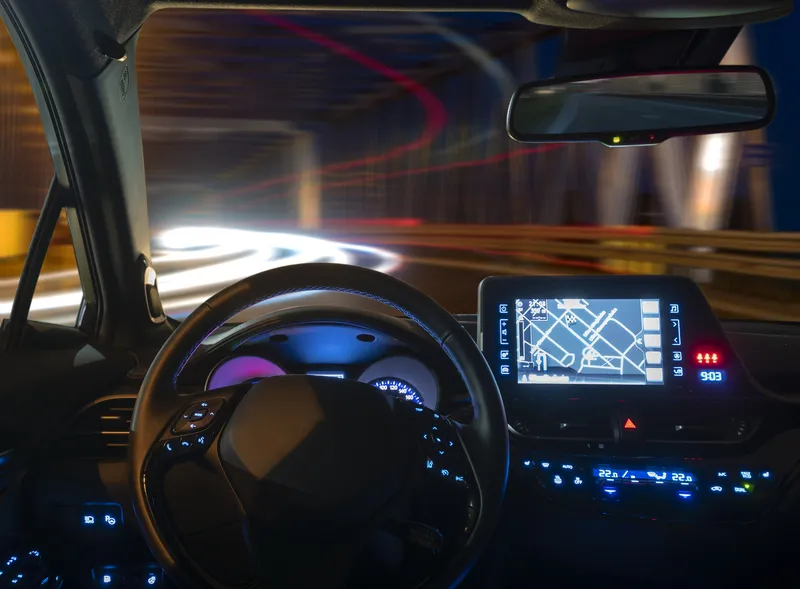Ford has upgraded its state-of-the-art Virtual Test Track Experiment simulator with improved image rendering technologies and capabilities to study driver performance, helping in the development of safety and driver aid technologies. The company says the simulator has helped in the development of heads-up displays, drowsy driver alerts and lane departure warning technology soon to be available on the all-new Ford Fusion.
The simulator was developed in 2001 and upgraded image rendering technologies now provide a high-resolution, digitally projected 360-degree horizontal field-of-view to test and measure driver acceleration, braking and steering performance as well as overall driver reactions in varying conditions. The company says that the upgrades will help Ford continue to develop and test active safety and driver aid technologies that warn drivers of imminent collision, drowsiness and other potentially dangerous scenarios behind the wheel.








